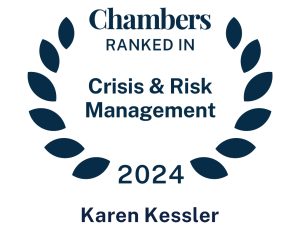Imagine that you are the CEO of a long-term care organization with dozens – maybe even hundreds – of facilities located throughout a state or in multiple states.
A reporter has reached out to you to schedule an interview about alleged workplace misconduct at one of your care centers but promises to share the questions with you in advance.
How would you respond?
Now imagine you are that same CEO, but that you arrive at work one morning to find a reporter conducting a live news broadcast outside of your main office. You’re asked – on the spot – to respond to allegations of workplace misconduct at one of your centers. Now how would you respond?
Now imagine you learn a second reporter is filming a news segment outside a different facility. The director of that facility, who has received no instructions on how to handle this situation properly, is facing a barrage of provocative questions from the reporter. How would you want the director to respond?
Media inquiries come in various forms, and you or your employees can get caught flat-footed if not properly instructed. It’s easy to respond with the appropriate, calculated response when you have time to mull it over, but that is not always the case. When put on the spot, interviewees tend to overshare and provide details that may severely harm or undermine your organization’s reputation.
So, what should you do if reporters arrive unannounced at your office, worksite or other company-owned facility?
- Plan ahead. Call a communications professional who can help you develop strategic messaging before any crises arise. A professional can help you establish preemptive communications such as holding statements, escalation protocols, talking points that speak to the company’s values and practices. They can even develop a full crisis communications plan that prepares you for a range of crisis scenarios. The goal is to ensure your first step is not a misstep.
- Assess the situation. If a crisis has emerged and you are approached by reporters before you have time to gather your thoughts, explain that you want to be sure they receive the most accurate, up-to-date information and can reach out to you via email. This will allow you to formulate your response without sharing inaccurate or confidential information.
- Shore up your internal communication policy. Staff members who are not authorized to speak to the media should not do so, under any circumstance. Identify and designate the appropriate member of leadership to speak on behalf of the company, whether reporters visit your facilities or if they call or write an email or social media comment.
- Be available. The media will cover the story regardless, so you want to make sure your message is part of the reporting – even if your comment does not provide any new or additional information. Reporters appreciate responsiveness and transparency. Even a simple response that highlights leadership’s confidence in the staff and your protocols can go a long way (depending on the nature of the allegations, of course).
Develop a media policy.
Not only will a strong media policy better prepare you to address future crises, but it will help lay the groundwork for what must be done to help weather the storm at hand.










